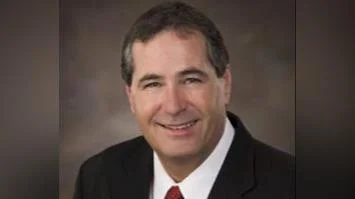Michael McKenna, Contributing Editor at The Washington Times | Washington Times
Michael McKenna, Contributing Editor at The Washington Times | Washington Times
Michael McKenna, contributing editor at The Washington Times, said that the recent jury verdict against Greenpeace demonstrates that energy companies can successfully challenge environmental groups' aggressive tactics in court. This statement was made in an opinion column.
"The most interesting part of the story was that an energy company and its top executive had finally stood up to the strong-arm tactics routinely employed by professional environmental political operatives and grifters rather than caving to their ridiculous demands," said McKenna. "In March, a jury agreed that Greenpeace was responsible for its actions. That decision put Greenpeace USA on the brink of bankruptcy. Groups such as Greenpeace don't care about energy shortages, lost jobs or the lives destroyed by economic calamities, but some energy executives, including Mr. Warren, do. Although environmental organizations can peacefully protest, they are not allowed to create violence, damage private property or knowingly market lies."
According to ABC News, the Dakota Access Pipeline protests began in early 2016 and intensified throughout the year, drawing thousands of demonstrators to North Dakota. Protesters included members of the Standing Rock Sioux Tribe and environmental activists who opposed the pipeline's route near tribal lands. The standoff resulted in several confrontations with law enforcement and garnered national and international media attention.
The Congressional Research Service reported that litigation and protests against the Dakota Access Pipeline project caused construction delays and increased costs for developers. The report notes that court-ordered suspensions and opposition actions resulted in substantial financial impacts for the pipeline operator. These disruptions were among the factors cited in subsequent legal claims.
The Climate Case Chart documents that a North Dakota jury found Greenpeace liable for significant damages in the Energy Transfer v. Greenpeace International case. The verdict included findings on trespass, nuisance, defamation, and civil conspiracy. This legal outcome marked a rare instance of an environmental group being held financially accountable for protest activities.
McKenna is a Visiting Fellow in the Executive Vice President’s Office at The Heritage Foundation, President of MWR Strategies, and a contributing editor at The Washington Times. He previously served as Deputy Assistant to the President and Deputy Director of the Office of Legislative Affairs at the White House.






 Alerts Sign-up
Alerts Sign-up